Assist to Whitted
Setting the record straight a ‘love story’ for the ages
By Stefan Cooper
Editor
Blount Press Row
Terry Whitted’s final game with the Alcoa High School boys’ basketball team to close the 1979-80 season was one for the books.
Alcoa fell, 58-54, to Middleton in the state tournament semifinals, but Whitted went out in a blaze of memorable glory. Under the watchful eyes of the most exacting statisticians a high school basketball player will face in Tennessee, the Tornado point guard led the team in scoring and, more importantly, a stunning 24 assists.
The assist number is important because it goes to the heart of what you are about to read.
In 1998, Whitted, by then a married father of two, was injured in a motorcycle accident and left paralyzed from the neck down. On Nov. 10 of last year, he passed away.
In the years prior to his friend’s death, Alcoa classmate Brian Perkins had lobbied successfully for Whitted’s inclusion in the Blount County Sports Hall of Fame. It wasn’t a sympathy vote.
“I thought Terry really belonged in the Hall of Fame,” Perkins said. “Terry was an amazing athlete. He was kind of a playground legend.”
As that final state tournament game would attest, when it came to assists, Whitted did things no one had ever seen, and Perkins, by virtue the book “Coach O: The Glory Days of Alcoa Basketball,” had the numbers to back it up.
The Hall inducted Whitted in 2010, but, beginning with the nomination process, there had been questions concerning the statistics cited in the book chronicling the Vernon Osborne years as Alcoa coach, the book compiled by Blount County Circuit Court Judge David R. Duggan and Alcoa historian and former school teacher Ken White.
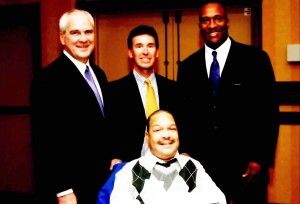
Whitted with friends, from left, Brian Perkins and Dewayne Easter and brother-in-law Marc Burnett at Whitted’s 2010 Hall of Fame induction.
Primarily, Whitted’s statistics from the book didn’t match with those maintained by former Alcoa coach David Marsh, who replaced Osborne following the 1989 season.
Marsh, the school’s only high school All-American in basketball, updated the record books a few years after taking the job. He had good reason.
Marsh’s nephew, Micah, had arrived by then. Micah Marsh, who replaced his uncle as coach years later, broke the school’s all-time scoring record with 1,636 points by the end of his playing days in 1994, eclipsing the 1,469 mark established by former Tornado sharpshooter Dennis Godfrey in the early 1970s.
Former Tornado and University of Alabama marksman Travis Stinnett eventually came by them both to set the current record at 1,748.
Micah Marsh blasted his way up the school’s scoring tables for three compelling reasons.
First and foremost, the former shooting guard was deadly accurate. Not since Godfrey had Alcoa seen a shooter of such quality.
Second, the player who played point guard on Micah’s Alcoa teams, Albert Davis III, son and namesake of arguably the most famous athlete in the school’s history, was a wizard when it came to getting open teammates the ball. When Davis found Marsh, the latter seldom missed.
Third, and this is a big one, the 3-point shot arrived in Tennessee high school basketball with the 1987 season, a fact that goes directly to the mind-bending assist totals Whitted compiled during three seasons of varsity play. In short, from 1987 on, basketball at the high school level – and every other level, for that matter — was a different game.
“It had as big an impact on the game as any rule change I can remember,” Maryville College men’s coach Randy Lambert said, “second only maybe to cutting the bottom out of the peach basket.”
Now, the numbers.
A list of school records Osborne left behind in his files at Alcoa credited Whitted with 307 assists during the 1978-79 season.
The year was mistakenly presumed Whitted’s senior season when updating the records began. A change was made, the numbers moved to the ’79-80 season. An Alcoa game program produced in the mid 1990s then cited Davis III with the career assist mark (584), Whitted the single-season record.
A plaque commemorating those records still hangs in the coach’s office at Alcoa.
Only there’s a problem.
The original numbers – 307 assists in the ’78-79 season – had been correct, only it wasn’t the single-season record. A year later, in ’79-80, Whitted shattered that mark, finishing with a new-record 341 assists. Those two seasons alone make him the school’s career and single-season record holder, never mind what he’d done as a sophomore.
Only now, there was another problem.
During the move to the school’s new gymnasium, the records Osborne left behind – including the season-by-season, statistical spreadsheets White and Duggan had used to source the book — had been discarded, presumably for housekeeping. Without those spreadsheets, there was no way to substantiate Whitted’s totals.
Like many of his generation, Osborne didn’t throw things away.
The documents at the school had been copies. In Osborne’s basement, the originals were located, having lain dormant in a bin of memorabilia for more than 20 years. Also there were the statistics from Whitted’s missing sophomore season. Once totaled, this was no longer just an Alcoa story.
As had been correctly cited in the Osborne book, Whitted finished his Alcoa career with a staggering 788 assists. Not only was he was the Alcoa record holder, a check of Tennessee Secondary School Athletic Association state records revealed Whitted – by a single assist (788-787) – might own the state mark as well.
Upon obtaining the spreadsheets retrieved from Osborne’s basement, Blount Press Row contacted TSSAA’s offices in Hermitage and notified them of the find. We were asked to have Osborne verify the authenticity of all three sheets; with a witness present, have him sign each of them at the bottom; then forward copies to the state office.
It’s likely to be a while before a determination is made. With Whitted possibly owning the record by so fine a margin, there will — and should — be questions.
Whitted’s total in only three seasons is a big, big number. It took four years for the current mark to be established in the mid 2000s.
How could Whitted, a junior college All-American at Roane State after Alcoa, record so many in only three seasons?
Why is there such a difference in overall team scoring?
Answer: the 3-pointer, or, more accurately, the lack thereof during Whitted’s career.
Scoring, number of shots taken and pace of play all rose with the 3-pointer. Shooting 40 percent from behind the arc equals 60 percent from beneath.
Field goal percentages, however, fell. Fewer made baskets equaled fewer assists. In Whitted’s case, just the opposite happened.
“I don’t think there’s any question it changed the way the game was played,” Lambert said.
Many coaches opposed the introduction of the 3, at least initially. Not Osborne.
“I said I’m going to get my kids working on it,” he said. “That’s going to make a big difference.”
Osborne favored a more deliberate style of play during his tenure, excepting when opponents employed fullcourt pressure.
“He (Whitted) was so quick,” Osborne said. “We got to where, with him as the point guard, we hoped (opponents) pressed us. You couldn’t hem that dude up.”
Lambert goes even further.
“The thing about Whitted is he was so quick and so good with the basketball off the dribble, it was hard to stay in front of him,” he said. “They (the Tornadoes) would just spread the floor and say, ‘Come out here and guard him,’ and they couldn’t do it. He was a one-man press offense, and you couldn’t keep him from getting the ball.
“You could argue the case he was the best point guard to ever play in Blount County.”
Lisa Whitted remembers fondly the first time she met her late husband. She was working in a fast-food restaurant at the time.
“He had this silly pick-up line,” she said. “He said, ‘I want some fries, a shake and your phone number.’”
The years Whitted spent in nursing homes were tough, Lisa said.
“It was hard for Terry,” she said. “He’d always been an athlete. He really enjoyed life, but he didn’t let (the accident) hold him down because he had kids. Terry was always a positive, active role model for his kids. We were really grateful we got to do a lot of things we wanted to do. We got through it with grace and mercy.”
Lisa said she often drew strength from the story of Dana Reeve, whose husband, actor Christopher Reeve, suffered a similar paralysis in a horse riding accident not long before Terry was injured.
“I would always tell people, ‘I married the real Superman,’” Lisa said. “He had that will in him to keep going.”
Lisa and Terry celebrated their 20th wedding anniversary on Nov. 6. Four days later, Terry passed.
“I’m grateful God trusted me to take care of (Terry),” she said. “It was not easy, but that’s life. It was a love story, not just Terry and me, but God’s love for us.”
Related Posts
About Stefan Cooper
Stefan Cooper is an award-winning sports journalist in Blount County, TN. Stefan has been writing about local sports for more than 25 years. In fact, he's writing stories today about the kids of players he used to write stories about. You'll spot him biking around town, hanging out at a coffee shop or Southland Books, or in his natural habitat: the sideline of the game.


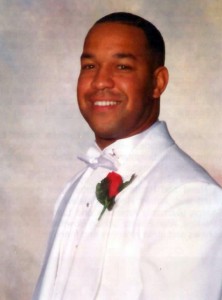
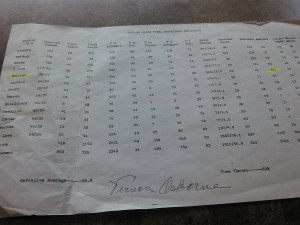
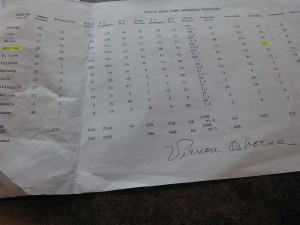
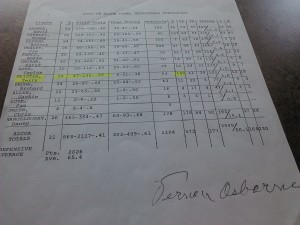
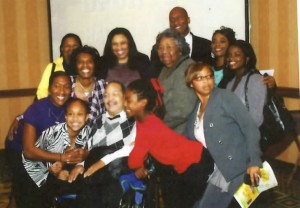

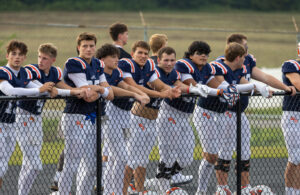

5 Comments
You must be logged in to post a comment Login